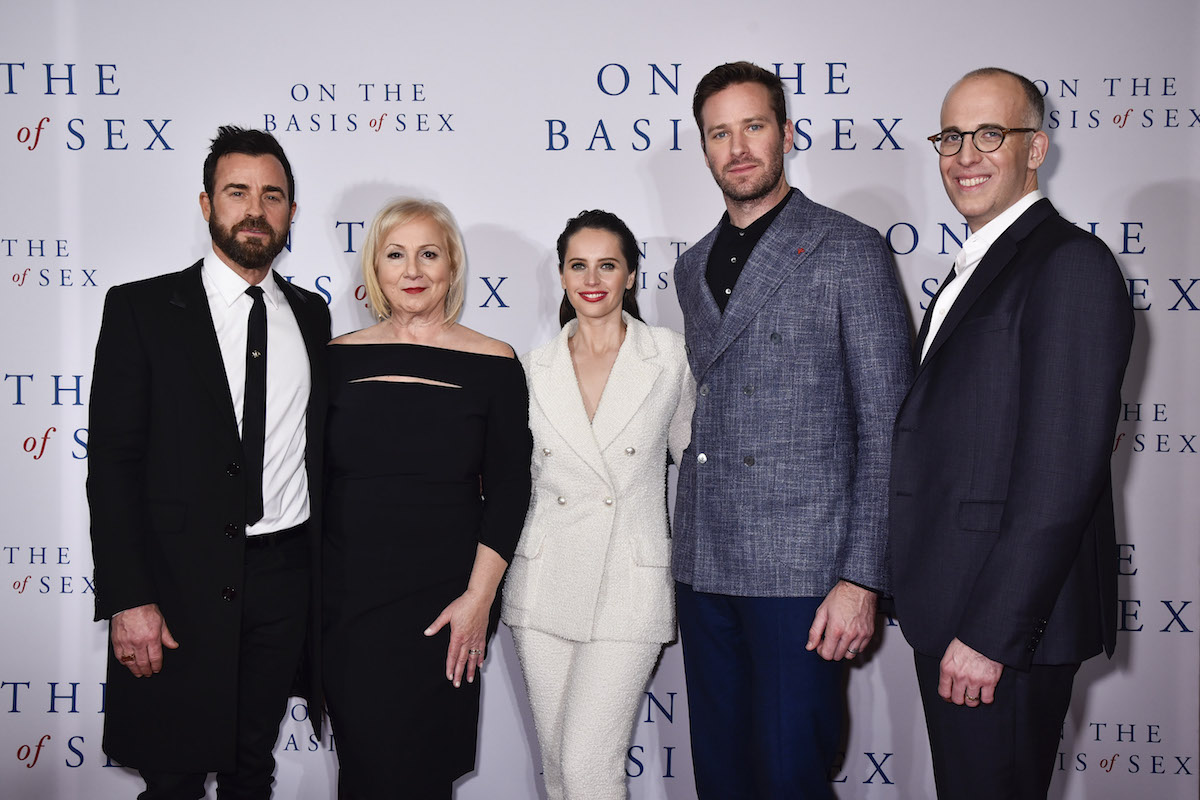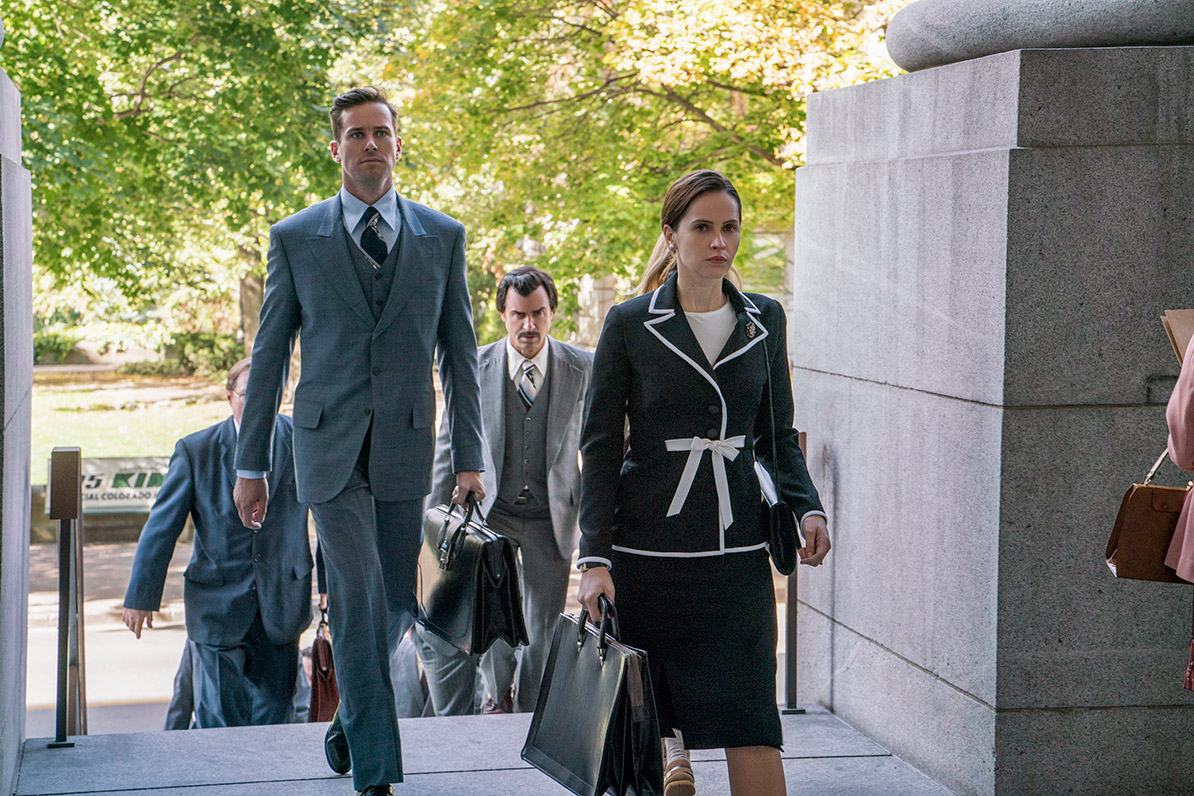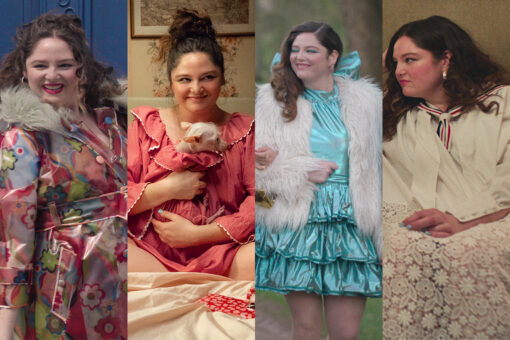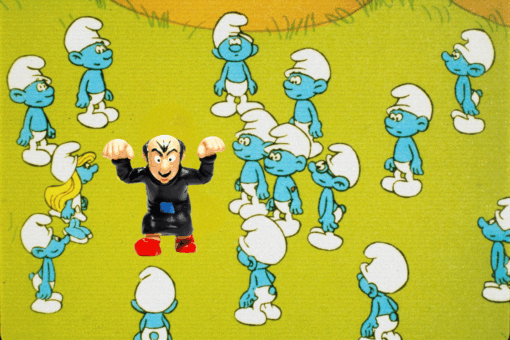Ruth Bader Ginsburg is not going anywhere. And this year, she seems to be everywhere. From a documentary to an authorized biography to a series of stellar bits on Saturday Night Live, the iconic Jewish Supreme Court Justice has permeated pop culture. It was only a matter of time before she got the Hollywood biopic treatment.
The film, On The Basis of Sex, which hits theaters this Christmas, is written by her nephew, Daniel Stiepleman. It focuses on a tax case that Marty Ginsburg brought to his wife in October 1970. In the case, a man was denied a tax deduction for hiring a caretaker for his 89-year-old mother. Per tax law, only never-married, employed daughters and widowed sons could do this — not unmarried sons. For Ruth, this was *the* example of sex-based discrimination she was looking for to litigate.
We had the chance to talk with Daniel about his process for the film, what he hopes viewers takeaway from the story, and, obviously, his “Aunt Ruth.”
Congratulations on your first film. Why did you choose this story?
Martin Ginsburg is my mother’s oldest brother, and I heard the story of the case [the film is based on] for the first time at his funeral [in 2010]. A friend of his gave a eulogy where he mentioned the only case that she and Marty ever argued together. And it was in the context of talking about how Marty, right up until he died, said that handing Ruth that tax case was the most important thing he had ever done, because it allowed Ruth to do everything that she has done.
I was sitting there, pretty newly married myself — my wife and I very consciously look to Ruth and Marty as our role models for what a marriage is supposed to look like. I was particularly fascinated by the story. Except, then I thought: What kind of asshole am I, sitting at my uncle’s funeral, mining his life for material? So it took me about another year to build up the courage to ask Aunt Ruth.
When you asked her, what was her reaction?
The exact quote was, “If that’s how you think you want to spend your time.” Not the most enthusiastic response.
After you got her approval, what was your research process like?
The first thing I did was I went down to D.C. [to] the Library of Congress. I dug through her files from the 60s and 70s; I was reading her lecture notes, and there were drafts of the brief, and letters that she had written to other lawyers about the case.
And then, by night, I was staying with her; we would sit and have dinner and drink wine and talk. First of all, she would explain half of what I read in the files, and then we would talk about marriage, raising kids, and how [she and Marty] managed to do it all — and do it together, at a time when that was so far from the norm.
The strength of their marriage really comes through in the film.
I don’t think you would have a Ruth Bader Ginsburg without a Marty Ginsburg. She didn’t do it all — they did it all. They raised their kids together. He did the cooking, they both did the cleaning, they both took the kids to school in the morning — they shared the load. They were partners. It goes to show how much people can do if they can do it together. And I think the beauty of Ruth and Marty is that neither one of them are perfect, but the two of them together really work perfectly.

Something that surprised me about the movie was the role of their daughter, Jane — how she pushed her mother toward activism. Did you speak with your cousin about this film and how she would be portrayed?
We did a friends and family screening over the summer. Jane’s daughter, afterwards, said, “Mom, is that really what you were like as a teenager?” And before Jane could even answer, Ruth butted in and goes, yes.
That’s one of the major themes of the film — [and] something Ruth has talked about a lot — how it was the next generation of women who really inspired her to become an activist. When she went to law school, there wasn’t even a women’s bathroom. And it never occurred to them to be offended by that; they just thought, wow, we’re so lucky to be in law school. And it was the next generation that really rose up and demanded equality. Not just access — equality. Jane is sort of the most prominent symbol of that generation, in her family.
How involved was Ruth in the actual film itself? Did she have any notes?
I sent her the first two drafts that she read in great detail like they were contracts. She wanted the law to be right, and she wanted Uncle Marty to be right. What was impressive is that she never had a note that came from any place of ego. You get to these scenes where she kind of stumbles, and I would be waiting for her to say, “Well, this never happened this way.” And she’d say, “Oh no, that makes it more dramatic, it has to be that way.” She got it. By the end of the writing process, I’m sending her scenes, going, “Would you please read this?!” She sort of backed off.

She got back involved in pre-production. The crew — especially Nelson Coates, the production designer, and Isis Mussenden, the costume designer — put so much work in getting her life right. Nelson went and found the blueprints from the building that she lived in in the ’50s so he could re-create the footprint of her apartment. And the photos around her desk in the movie are replicas of the real photos that are around her desk, with the cast instead of real people. They were constantly asking her questions: What kind of typewriter did you use? Did you write with a pen or a pencil? As someone who, as you hope, has a very focused sense of detail, she appreciated how much detail was going into recreating her life.
Did she ever correct anything?
[Director] Mimi Leader [and I], we brought her the film when it was picture lock so she could see it and tell us what she thought. And [she told us] we mispronounced the name of her camp. So Justin Theroux had to come back in and re-record.
I saw the picture that Armie Hammer recently posted with Ruth. How did she feel about the casting of Marty?
Oh, she loved — she’s so happy with the casting. As someone who has known Ruth and Marty Ginsburg my whole life, Armie [Hammer] and Felicity [Jones] are just uncanny in the roles. It’s really — it’s incredible.
Ruth [has] now seen it three times. In fact, we offered after she’d seen it twice, we said, “Oh we can go out for dinner, you don’t need to watch it a third time.” She said, “I want to see it a third time!” Part of the joy of the film is she gets Marty back for a couple hours. Because Armie is so good in that role. He’s so charming and so confident and so smart.

And Felicity is brilliant! After the first time she saw it, Ruth looks at me and goes, “I’m so glad it’s Felicity,” because Ruth has a very particular alchemy to her personality. [She’s] so smart and so intellectual and so driven and almost myopic, but also it’s all undergirded with this joy — and there’s not that many actresses who could pull that off, that particular balance. Felicity does it incredibly — and then on top of that, [she gets] the mimicry aspect of the role. All the physical things — the way she walks, the way she smiles, the way she talks, the way she leans into her Brooklyn accent, and then when she [tries to] cover the accent. All of that is very Ruth. Ruth has a first cousin who, after she saw the movie, seemed genuinely freaked out about it, [saying] she just is Ruth! She became Ruth!
My favorite part of the film was that I felt like I was seeing this snippet of their lives.
Yeah, it’s important to remember that — you know, we all think of Ruth as an 85-year-old bubbe. She wasn’t always a bubbe! She was a young woman who was trying to find her way in the world, just like the rest of us.
What is your reaction to her recent superstardom?
When I started writing this, I told people, “Oh, I’m going to write a movie about Ruth Bader Ginsburg,” and their reaction was, “Well, the problem is, nobody knows who Ruth Bader Ginsburg is.” [Laughs] It was that long ago!
I thought this was going to be the movie that was going to introduce Ruth to the world. And then she became this iconic rockstar. And it’s a little bit strange. A few months ago, I went to her lecture at Columbia University. She walked out on the stage, and the entire huge auditorium jumped to their feet and [started] screaming like she was Mick Jagger. That was when it really hit me — oh my goodness! What is this! This is my 85-year-old bubbe! It was shocking and a little bit confusing, but not undeserved.
On one hand, I love it. But, we do a little bit of a disservice to her when we treat her like she’s a superhero. Because a superhero has superpowers. If she’s a superhero, the rest of us can’t accomplish what she accomplished.
And what the movies does — what I hope the movie does — is it humanizes her again, and reminds people that for all the incredible things she’s accomplished, she’s still a human being. It’s much more inspiring to see a human being accomplish these things, than someone with superpowers doing heroic feats.
This interview has been lightly edited and condensed.



